Install a smoke alarm between each sleeping area and the rest of your home. If you live in a house with more than one level, install a smoke alarm on each level.
Installation
CFA recommends that smoke alarms be installed in every living area and bedroom.
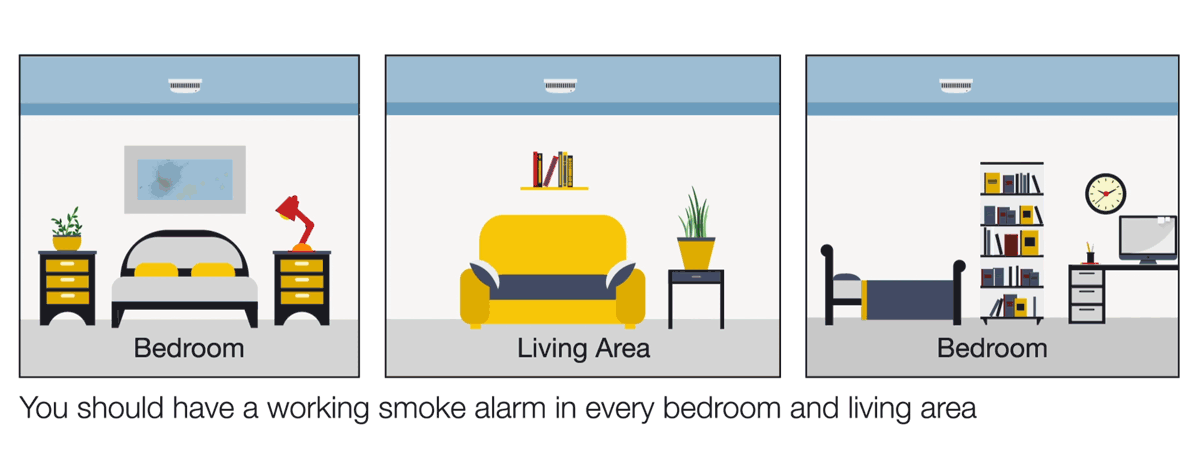
The increase in products and devices that we use in our home these days mean that fire could start anywhere in our living areas and bedrooms. Modern home designs and the materials used in modern furnishings means that fire can develop and spread much more quickly than 30 or 40 years ago. Having smoke alarms in every living area and bedroom, including in hallways and stairs between floors increases the opportunity that a fire will be detected more quickly. This will give your family the best chance of escape.
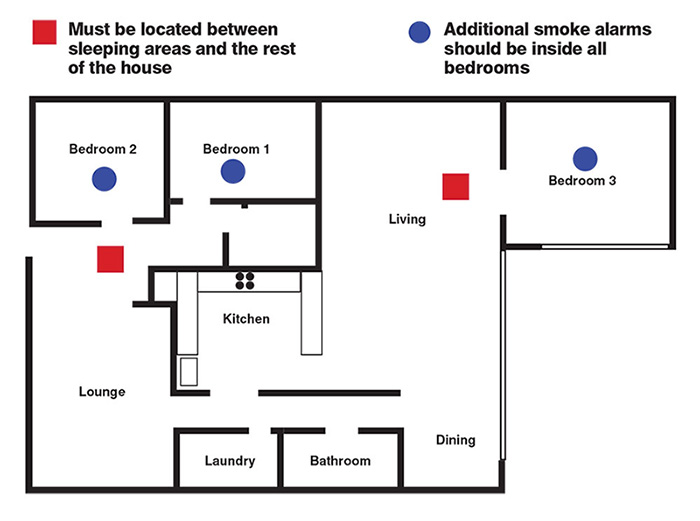
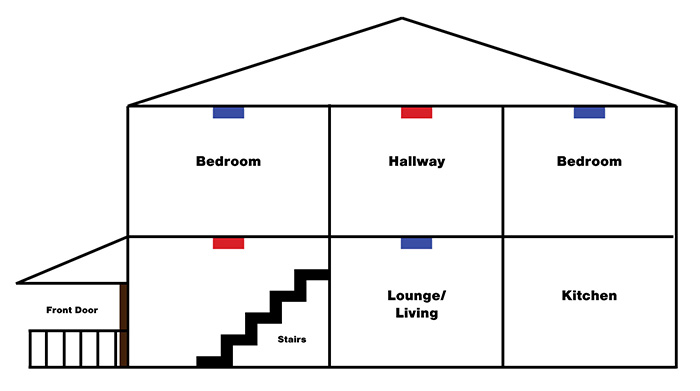
CFA recommends that smoke alarms should be interconnected, so when any alarm activates, all smoke alarms will sound.
Today we have rooms on different levels of the home. Some homes are long with rooms at each end of the home. Some people sleep with doors closed. In all these cases it may take time for smoke to reach a smoke alarm, especially if doors are closed. Some smoke alarms can be interconnected so that if one goes off, they all do. This is of particular importance if you have a children's wing or parent's retreat in your home. Studies have shown that 85 percent of children do not wake to the sound of a smoke alarm. It's important that if a smoke alarm activates in a child's bedroom, the parent's smoke alarm should be interconnected so that it goes off a the same time.
New legislation requires that all new homes (and those undergoing significant renovation) after May 2014, where there is a need for multiple smoke alarms, they must be interconnected so that if one smoke alarm activates, they all do.
CFA recommends that smoke alarms should be interconnected, even in existing homes.
It is the responsibility of the landlord to ensure working smoke alarms are installed in rental properties.
Follow the manufacturer's instructions when installing smoke alarms.
On a ceiling
Smoke alarms should be located in the centre of the ceiling. If it cannot be located here it should be located 300mm from any cornice or wall.
On a wall
Smoke alarms should be located 300mm - 500mm from the ceiling.
On a cathedral ceiling or sloping ceiling
Smoke alarms should be located 500mm - 1500mm from the highest point.
- Avoid drafts: Do not install smoke alarms near windows, doors or air ducts where drafts could affect alarm sensitivity
- Avoid dead air spaces: A dead air space is an area in which trapped air will prevent smoke from reaching the alarm. This generally occurs at the apex of cathedral or sloping ceilings, the corner junction of walls and ceilings, and between exposed floor joists.
The Building Commission has further information on installing smoke alarms.
Maintenance
Smoke alarms need love, too!
Despite the regulations, research suggests only 45 per cent of properties attended by fire services had smoke alarms and, of those, 31 per cent were not working.
You can ensure your smoke alarm is constantly protecting your family by keeping it in good working order.
- Test it monthly by pushing the test button to make sure it beeps
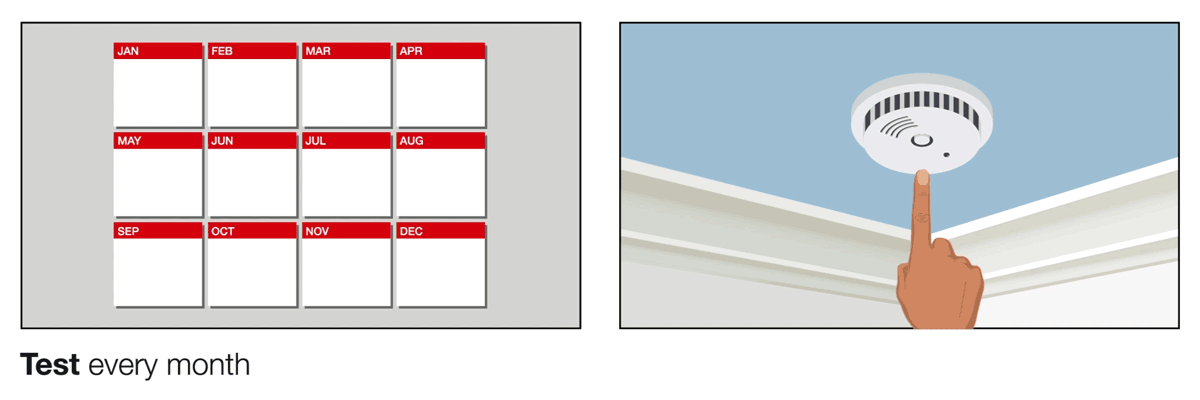
- Dust the alarm with a vacuum cleaner brush and change the battery at least once a year
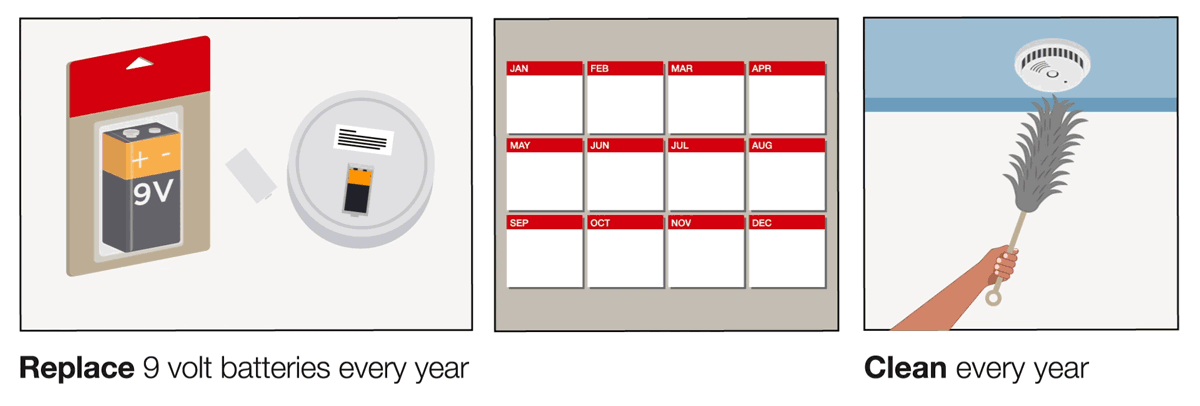
- If your smoke alarm is more than 10 years old, change your smoke alarm to a new unit with a lithium battery with a 10 year lifespan
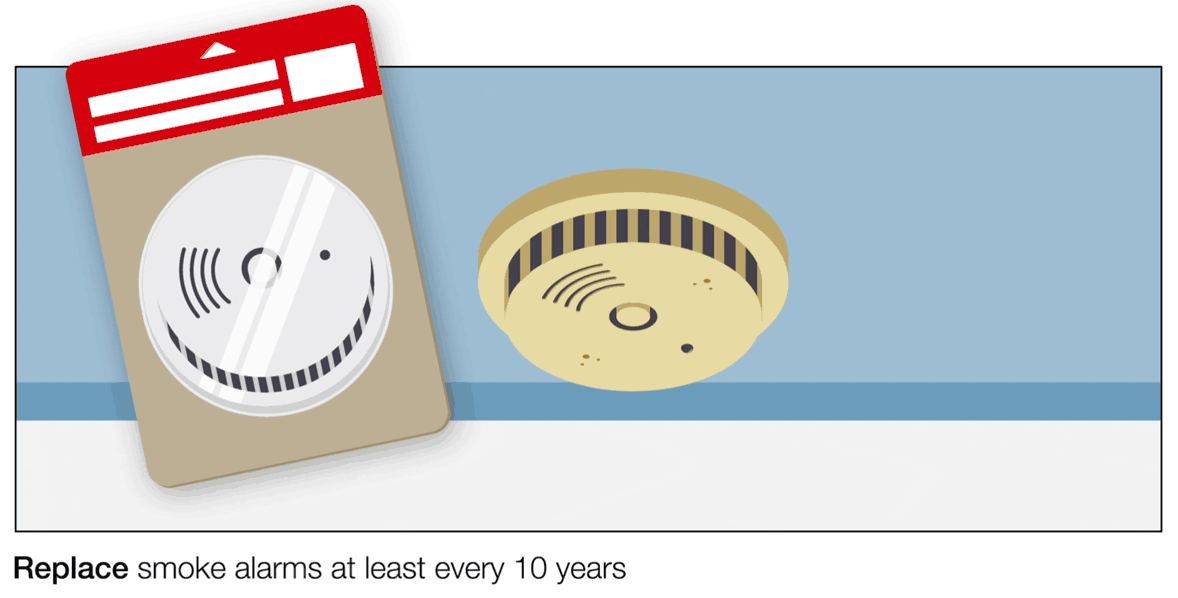
House fires occur more frequently during the winter months, and making sure you go in to winter with a working smoke alarm makes good sense.
If you have a hard-wired smoke alarm, these still have a battery as a back-up and the battery needs to be changed as well.
Smoke alarms don't last forever
Smoke alarms have a lifespan of about 10 years. After that, you should replace them.
Most smoke alarms have a use-by date printed on them. If your alarm is still beeping after you have changed its battery, the smoke alarm should be replaced.
New smoke alarms with a long lasting lithium battery have a 10 year lifespan to ensure you and your family can feel the highest level of security.
Existing hard-wired, 240 volt smoke alarms must be replaced with new hard-wired smoke alarms and this can only be done by a licensed electrician.
What to do when a smoke alarm goes off
It is vital you know what to do if a fire occurs. Follow these simple rules to plan how you would escape a fire in your home and practice it with the whole family.
- Get down low and stay out of smoke
- If it’s safe, close doors on your way out to slow down the spread of fire and smoke.
- Alert other people on your way out of the building
- Get out and stay out
- Meet at a safe place such as the letterbox outside of your home
- Call 000 (triple zero) from a mobile phone or a neighbours phone. Ask for FIRE
Page last updated: Tuesday, 27 August 2024 11:25:24 AM